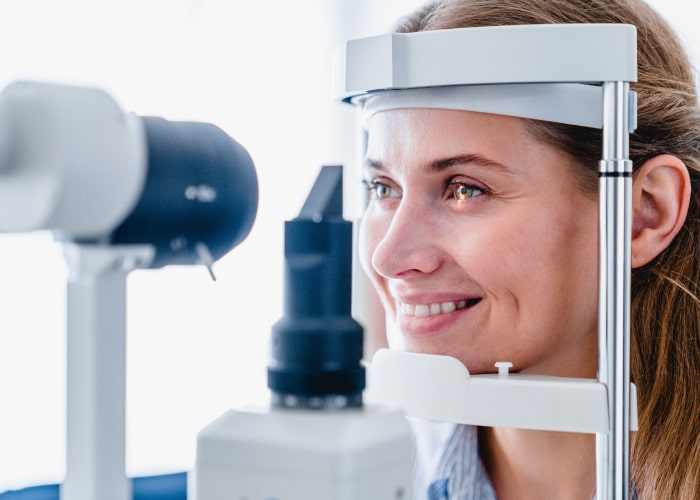
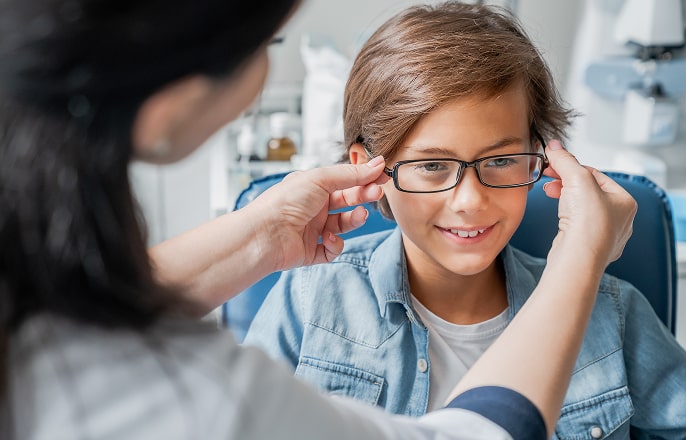
Eye Examinations
Eye exams are about more than vision correction
Whilst routine eye examinations involve an assessment of vision and advice on the best vision correction, they cover far more than this.
They are sophisticated health screenings that can detect potential eye health issues before they escalate.
At Cole Martin Tregaskis, we will take a close look at the light-sensitive tissue at the back of your eye (retina) and the blood vessels that supply it. We will look for signs of:
- Eye diseases, such as diabetic retinopathy, glaucoma and retinal detachment
- Nerve conditions, such as optic neuritis
- High blood pressure
- High cholesterol
- Diabetes.
If your optometrist detects any signs of eye disease, they can refer you to a doctor who specialises in treating the eyes (an ophthalmologist) for treatment and monitoring.
If they detect signs of other diseases, such as diabetes or high blood pressure, they can refer you to your GP for further testing and treatment.
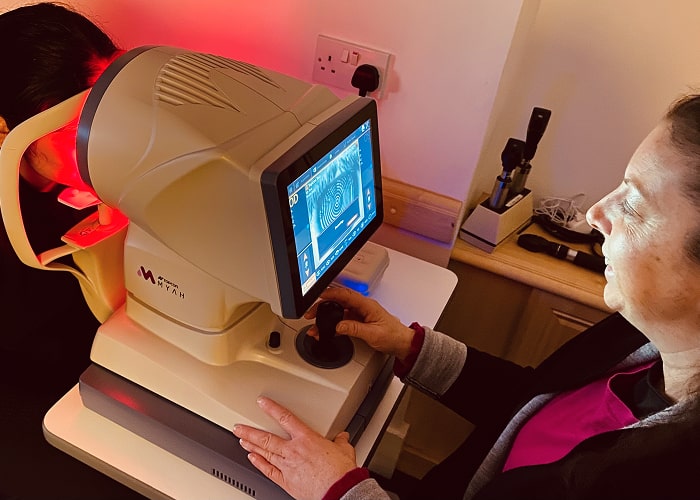
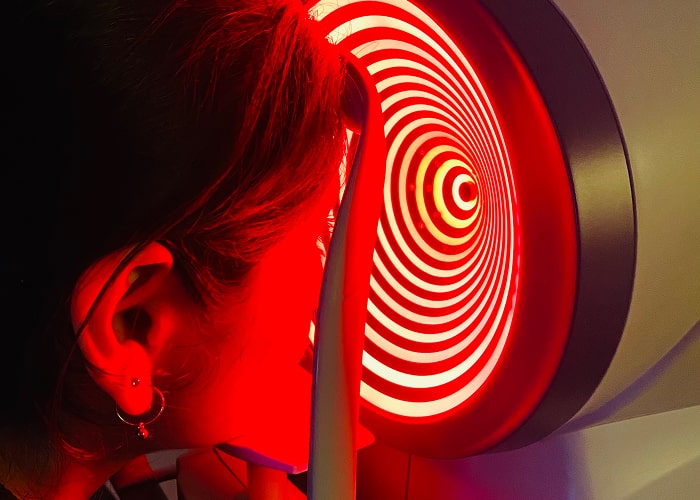
What happens during an eye exam?
Our expert optometrists will use our cutting-edge diagnostic technology to examine your eyes and investigate your eye health. This includes:
- A visual acuity test – a letter chart test
- Basic orthoptic tests – testing eye coordination
- Ophthalmoscopy – examining the inside of your eyes
- Distance refraction – to check if you need glasses for distance vision
- Near refraction – to check if you need glasses for near vision
- Anterior eye assessment – checking for external eye disease
- Additional diagnostic tests such as eye pressure and visual fields (peripheral vision) when indicated.
All of the tests we carry out are painless and non-invasive.
Frequency matters
Your eyes change over time, especially as a child when the eyes are still growing and with age. Some eye conditions do not have symptoms until they are very advanced, so it is important to have regular checks.
We recommend that adults aged 18–60 get checked every two years unless you have a family history of glaucoma, in which case you may need more frequent eye tests.
Children and adults over the age of 60 are more at risk of eye problems and therefore may need more frequent checks.
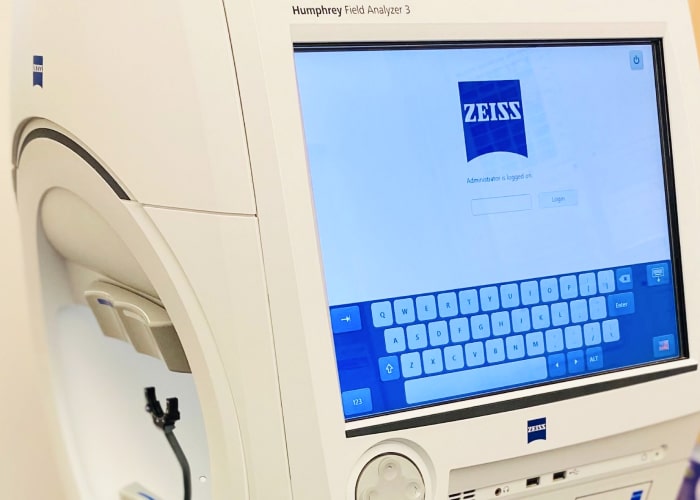
Don't leave your eye health to chance
Book your comprehensive eye examination today and enjoy healthier, clearer vision for years to come.
